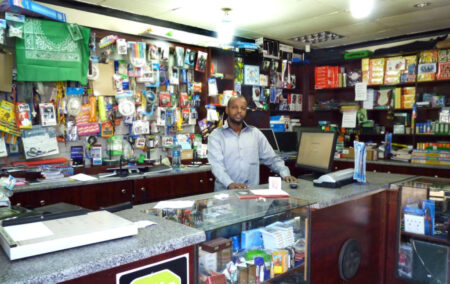Politicians are courting danger by entertaining anti-immigrant sentiments. Contrary to some, I believe race is mostly an elitist concern, but immigration from Africa (and South Asia) is a real issue among many communities, if not most. Enough reasons exist for South Africans to be angry, especially the poor among us, especially if they are young.
Once people are angry, the next step is usually finding a target for that anger; someone has to be blamed. Since poor immigrants live in the same communities in which people are employed, and are culturally, and because of their circumstances, more entrepreneurial, they become an obvious target of anger. Of course this is not true of everyone or even of most people, but it is still true that immigrant entrepreneurs have customers as well as landlords in the same communities.
Violent minorities in environments where people are poor can wreak havoc. And South Africa is likely going to experience much more poverty. The Treasury, for instance, estimates that the expanded unemployment rate will increase from the current 37% to between 48-64% due to the lockdown, and government estimates are notoriously optimistic. To make matters worse, unemployment among 15-24 year olds was at 67.6%. Assuming that the estimates grow at the same rate for all unemployment, we should expect a youth unemployment rate (among 15-24 year olds) of at least 88%, and, if Treasury estimates are correct, the upper bound yields 116% (which can be taken to be 100%, since percentages greater than a hundred have no meaning in this context).
Keep in mind that unemployment is calculated from the labour force, with those who are in school or pursuing an education being excluded from the denominator as well as the numerator. Right now, 67% of young people who want to work (although some have stopped looking for work) and are not pursuing an education are unemployed. Using the Treasury estimates and assuming a uniform growth rate among all sub-categories, we get between 88-100% unemployment in a labour force of more than 3.5 million people.
This is a frightening time for the country, no more so than for African/South Asian immigrants who will inevitably be used as a scapegoat. This is why politicians, the media and everyone in the public eye has the responsibility not to fan these flames. Poor people do desperate things; often all it takes is an authority figure expressing some misgivings or xenophobic sentiments about immigrants. Examples of this are the outbreaks after irresponsible statements by Herman Mashaba (while he was mayor of Johannesburg) and Zulu King Goodwill Zwelithini.
It is hard for most people to conceive of the value added by immigrants to the South African economy, as workers and often as employers. Just like the rest of us. In fact, there should be no justification for discriminating against hard-working individuals who peacefully conduct their business without stealing, killing or assaulting anyone. No reasonable person would disagree with deporting criminals, people who have committed murder, theft, rape and so on.
Deporting peaceful people who, through no fault of their own, are forced into trading without licences or permits or who generally cannot comply with regulation, would be the equivalent of throwing our informal traders in prison. These people are facing the same hardships, and we cannot in good conscience stop them making a living if their transactions are all voluntary.
The real enemy is poverty and those who perpetuate it for their own gain. Those who regulate poor people out of markets, especially the job market, but also in a more general sense of participating in small-scale business. South Africa’s lockdown has shown us that the economic regulations we have chosen might make sense in Europe or some of our suburbs, but are wholly inadequate for the country we live in.
In the meantime, it would be unjust for the government to give some South Africans more freedom while depriving others of theirs. The solution to this quandary is decentralisation. As noted in the Treasury policy document, South Africa has to transition to evidence-based policy-making and part of this includes suitable pilot studies of any given measure. The best way to do that is through allowing provinces or municipalities to set their own regulations.
These would in effect enable Special Economic Zones. Government would still set policy in other areas, but when it comes to taxation and regulation, municipalities could tailor policies to best suit their particular conditions. In some areas, people might opt for stringent regulations, while in others the situation would be different.
This is just one possibility. It almost doesn’t matter how they come about, the important thing is we need to liberate the economy urgently or we risk facing an unprecedented explosion of anger that will start with immigrants and who knows where it might end. The realisation of this a month ago, before most people started getting to grips with the horror of what was coming, led me to oppose the lockdown itself.
Now is not the time to bemoan the steps that got us here. The time to disregard the government and fix the country ourselves has come; it is either that or giving up on this place. We have had 26 years of African National Congress rule, we have had six parliaments, and not one of them implemented the necessary reforms even as civil society was shouting loudly for them to do so. In fact, they made things worse. We are now confronting the consequences of these actions and we have to deal with them regardless of whether we caused the problem or not.
The views of the writer are not necessarily the views of the Daily Friend or the IRR
If you like what you have just read, subscribe to the Daily Friend

